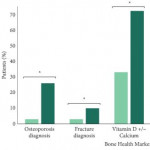“Is radiotherapy the work of the Devil?” – why we chose this title.
With the recent electronic publication of our editorial written for the BJUI USANZ supplement, we have been somewhat surprised with the Twitter response our title has generated with some very strong opinions expressed. Why would a radiation oncologist, who happens to be the Chair of their National Genito-Urinary group (“FROGG”) propose such a provocative title? The BJUI editorial board wisely suggested that we explain the origin of this title which would be lost on many outside Australia.
In mid-2014, a leading Australian urologist quipped that adjuvant post-prostatectomy radiotherapy was “the work of the Devil” when referring to some of the severe complications that can occur following post-prostatectomy radiation. This comment has become “infamous” in Australian Radiation Oncology circles leading to extensive discussions and interactions between our specialties with urologists stating that radiotherapy complications can occur late and be very challenging to treat and radiation oncologists stating that these complications are relatively uncommon and that overall quality of life is as good if not better when going down the radiotherapy pathway. This is the climate that the article by Ma et al was submitted to the BJUI describing the impact of radiotherapy complications on a tertiary urology service in Melbourne Australia over a 6 month period.

I was impressed that the BJUI approached a radiation oncologist to provide balance on such a paper. We provocatively titled the editorial “Is Radiotherapy the work of the Devil?” and were hoping the response to anyone reading the editorial would be a resounding “No”. However, many have only seen “the headline” and not read the editorial itself which appears to have created offence especially from some of our international Radiation Oncology colleagues. The aim of such a title is that it will encourage people to read both the original article and the editorial which we feel provides a balanced view on the impact of radiotherapy complications in contemporary practice. We hope that in future, the response to our title: “Is Radiotherapy the work of the Devil” is “No – the Devil is in the detail”.
A/Prof Andrew Kneebone
Department of Radiation Oncology, Royal North Shore Hospital and Chair of the Faculty Of Radiation Oncology Genito-Urinary Group (FROGG)




Andrew
This editorial comment is a very sensible, measured and balanced response to the paper by Ma et al and makes some pertinent points. All interventions carry risk and these can be short or long term. It is only by measuring outcomes, assessing responses to primary and secondary treatments, and working collaboratively that we can truly look after patients with these difficult problems.
Headlines taken in isolation can backfire sometimes and you have provided the context to inform those Twitterati who raised concern. Well done on a measured editorial.
Gosh this title seems to have provoked a big response on Twitter! I presume from some of the tweets that people may only have read the headline and not fully digested the editorial? Certainly, some radiation oncology colleagues seemed not to realise that the senior author on this editorial is one of Australia’s most highly respected radiation oncologists. Andrew Kneebone is not just a senior leader in GU radiation oncology in Australia (and Chair of the Faculty of Radiation Oncology GU group), but also someone who has worked particularly hard to encourage closer multidisciplinary collaboration between urologists and radiation oncologists. Some of the invective has been quite severe, directed at both the authors and the BJUI, which is disappointing. I think Andrew’s editorial answers the provocative question he posed in the title quite nicely in defense of radiation. “The Devil is in the detail” indeed.
I do feel somewhat guilty of course, as I was the “inspiration” for this provocative headline (sorry again Andrew)! My notorious tweet from 2014 makes regular appearances at radiation oncology meetings in Australia and beyond. It was part of a thread referring to a European Urology paper showing that early salvage radiotherapy was as effective as adjuvant radiotherapy. This followed from an editorial I had written shortly before then regarding the ten year Bolla paper, also arguing that “the lack of improvement in overall survival, clinical progression-free survival or distant metastases in the adjuvant arm, as well as the higher rate of late adverse effects in those patients randomised to immediate radiation, would lead urologists to prefer early salvage radiotherapy”. That is all quite reasonable opinion I believe.
However, I then tweeted that “adjuvant radiotherapy is the work of the Devil”!! I fully accept that this is not a reasonable opinion!!!
I do regret that language and have had a chance to say so at various fora since then. There is really no excuse for describing it as so, although I had just had a rough month managing two devastated bladders following post-operative radiotherapy. That is not a justification, and I agree with Andrew that such cases are not common (they are also not rare), but they do weigh very heavily in the minds of urologists as they tend to take a lot of looking after. Eagle-eyed readers have also pointed out that I tweeted this at 2am and wondered exactly what I was up to at that time! I actually went back and checked my calendar and can see that I was boarding a flight to Asia at that time, so I can neither confirm nor deny that I may have had a glass or two of red wine, as is my wont before a long overnight flight!
Anyway, I hope everyone can now move on. The Journal and the authors have not enjoyed seeing all of this play out on Twitter. I think anyone who has read the editorial in full as well as Andrew’s considered blog, will understand how well meaning the editorial was, and perhaps go a little easier on the authors and the journal. I am still quite accepting of my role as a voodoo doll in all of this!